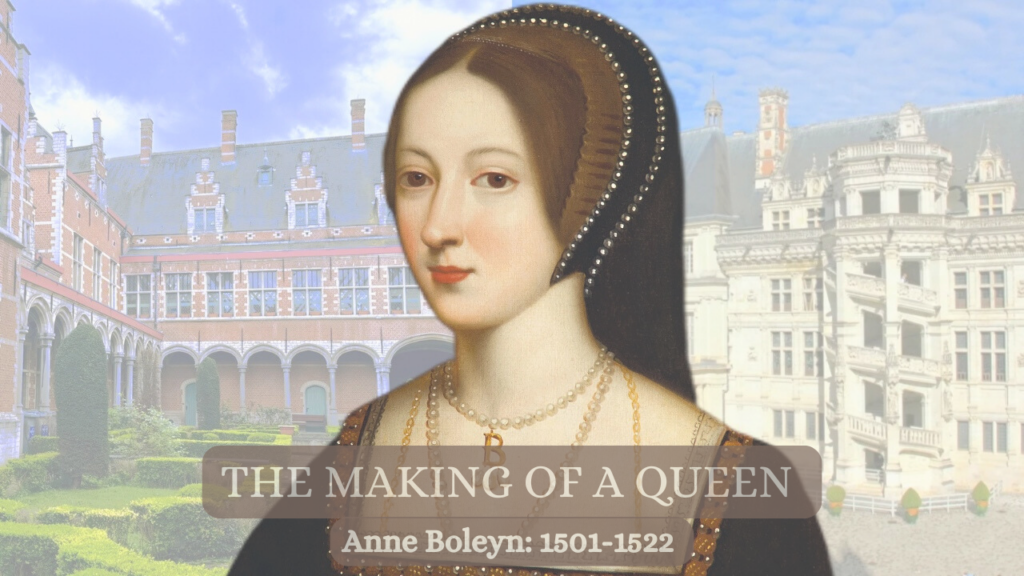After the brutal execution of George Boleyn, Henry Norris, Francis Weston, William Brereton and Mark Smeaton, Thomas Wyatt spent a brief time at court before returning to his father’s castle at Allington. Alison Weir believes it is likely that it was during this time that he completed this longer poem about the sorrow he felt at the loss of his friends.
In Mourning wise since daily I increase,
Thus should I cloak the cause of all my grief;
So pensive mind with tongue to hold his peace’
My reason sayeth there can be no relief:
Wherefore give ear, I humbly you require,
The affect to know that thus doth make me moan.
The cause is great of all my doleful cheer
For those that were, and now be dead and gone.
What thought to death desert be now their call.
As by their faults it doth appear right plain?
Of force I must lament that such a fall should light on those so wealthily did reign,
Though some perchance will say, of cruel heart,
A traitor’s death why should we thus bemoan?
But I alas, set this offence apart,
Must needs bewail the death of some be gone.
As for them all I do not thus lament,
But as of right my reason doth me bind;
But as the most doth all their deaths repent,
Even so do I by force of mourning mind.
Some say, ‘Rochford, haddest thou been not so proud,
For thy great wit each man would thee bemoan,
Since as it is so, many cry aloud
It is great loss that thou art dead and gone.’
Ah! Norris, Norris, my tears begin to run
To think what hap did thee so lead or guide
Whereby thou hast both thee and thine undone
That is bewailed in court of every side;
In place also where thou hast never been
Both man and child doth piteously thee moan.
They say, ‘Alas, thou art far overseen
By thine offences to be thus deat and gone.’
Ah! Weston, Weston, that pleasant was and young,
In active things who might with thee compare?
All words accept that thou diddest speak with tongue,
So well esteemed with each where thou diddest fare.
And we that now in court doth lead our life
Most part in mind doth thee lament and moan;
But that thy faults we daily hear so rife,
All we should weep that thou are dead and gone.
Brereton farewell, as one that least I knew.
Great was thy love with divers as I hear,
But common voice doth not so sore thee rue
As other twain that doth before appear;
But yet no doubt but they friends thee lament
And other hear their piteous cry and moan.
So doth eah heart for thee likewise relent
That thou givest cause thus to be dead and gone.
Ah! Mark, what moan should I for thee make more,
Since that thy death thou hast deserved best,
Save only that mine eye is forced sore
With piteous plaint to moan thee with the rest?
A time thou haddest above thy poor degree,
The fall whereof thy friends may well bemoan:
A rotten twig upon so high a tree
Hath slipped thy hold, and thou art dead and gone.
And thus farewell each one in hearty wise!
The axe is home, your heads be in the street;
The trickling tears doth fall so from my eyes
I scarce may write, my paper is so wet.
But what can hope when death hath played his part,
Though nature’s course will thus lament and moan?
Leave sobs therefore, and every Christian heart
Pray for the souls of those be dead and gone.






















Leave a Comment